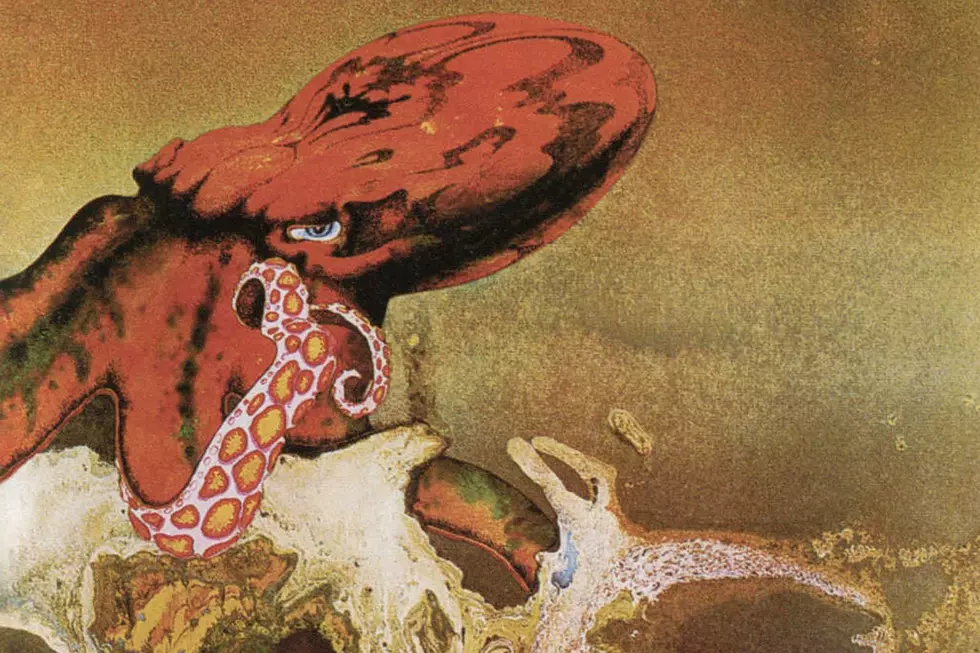
How Gentle Giant Created a Masterpiece With ‘Octopus’
In progressive rock's dusty ol' '70s yearbook, bands like Yes and Genesis were Most Likely to Succeed. Gentle Giant, on the other hand, were the brilliant and slightly awkward Class Clowns. And they were never as awkward or brilliant as they were on their 1972 masterstroke, Octopus.
In the liner notes to the album's 2011 reissue, multi-instrumentalist Phil Shulman stated, "The eight pieces (on the album) were originally intended as musical portraits of the band and roadies but found their own identity in the making. The title came from Bobbi, my wife, who recognized eight pieces with very different arms as a fair reflection of the band then."
Released on Dec. 1, 1972, Octopus is an absolutely perfect title for an album that branches off in so many strange, thrilling directions: No bones about it, Octopus is one of the most complex and technically dazzling in the history of progressive rock.
This music is so dense, so challenging, so utterly bizarre (and was so, even during the band's '70s heyday) that it's often overlooked, even by prog obsessives. It takes a special kind of listener to digest a song like "Knots," a dizzying whirlwind of overlapping, madrigal-tinged vocal harmonies, discordant glockenspiel, and jaunty piano breaks. But for the dedicated, open-minded (and, let's face it, weird) listener, it's transcendent, totally unique music that sounds like no other band on the planet.
Listen to Gentle Giant Perform 'The Advent of Panurge'
On Octopus (which peaked at an un-stellar but unsurprising No. 170 on the Billboard chart), Gentle Giant use their varied instrumentation -- guitars, keyboards, bass, drums, assorted percussion, saxophones, violins, loads of vocal harmonies -- like bold paints on an abstract canvas, using odd juxtapositions to push listeners out of their comfort zones.
But these songs are also fun: "The Advent of Panurge" and "A Cry for Everyone," for all their shifting structures and busy time changes, are built on Derek Shulman's muscular vocals and Gary Green's tight guitar riffs. Even at their most complicated, Gentle Giant never skimp on hooks or energy.
"I remember that we felt pretty confident going in to make this album,' Green wrote in the reissue liner notes. 'We had a good bunch of tunes and our studio chops (particularly Ray's) were getting better with each record. We continued our experimentation with instrument combinations, sounds, and effects, bouncing ideas back and forth with engineer Martin Rushent, who fell right in step with our brand of madness."
Madness indeed, but a particularly inspired brand. Octopus is as off-putting and powerful as it's ever been.
The Top 100 Rock Albums of the '70s
More From Ultimate Classic Rock









